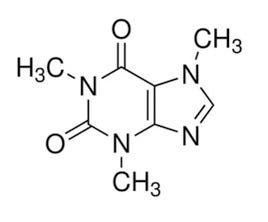Caffeine — How does it work, and what happens when you detox from it?
Believe it or not, caffeine is considered a drug. Like other drugs, it works for a while; then, your body becomes reliant on it to function. This article will examine what caffeine is and what happens when you don’t consume it anymore.

Believe it or not, caffeine is considered a drug. Like other drugs, it works for a while; then, your body becomes reliant on it to function. This article will examine what caffeine is and what happens when you don’t consume it anymore.
What is caffeine?
Caffeine belongs to a group of drugs called stimulants. The most common food sources of caffeine are coffee, black and green tea, soft drinks, and chocolate. So, in short, a lot of delicious and dopamine-releasing foods.

According to the Mayo Clinic, the limit of caffeine intake per day for healthy adults is 400 mg. To put this in perspective, that’s equivalent to six shots of espresso in your Starbucks drink, ten cans of cola that you hide underneath your bed, and three cans of Monster chugged consecutively to finish that term paper on time.
About 54% of Americans over the age of 18 consume caffeine daily. About 21 million Americans drink six or more cups of coffee every day. Caffeine has become such an integral part of our community that the fact that it’s a drug often slips people’s minds. Trying to quantify the amount of productivity and focus created by caffeine would be an impossible task, and in that regard, caffeine has done its job.
As with all drugs, caffeine comes with its own benefits and drawbacks.
How does caffeine work?
To understand the mechanism behind caffeine, we must understand the mechanism behind another substance in our brain: adenosine. Adenosine acts as a neurotransmitter in the brain and has many jobs, including widening blood vessels and regulating heart rhythm. Adenosine also plays a role in our sleep-wake cycle, promoting sleepiness at high levels.
When caffeine travels to the brain, it blocks the receptor that adenosine binds to promote sleepiness. This is the reason why drinking caffeine keeps us more alert and awake.
Since caffeine is a drug, it has a half-life. A half-life is the amount of time for 50% of a drug to leave the body. The half-life of caffeine is five hours, meaning that it takes around ten hours for all the caffeine to leave your body.
What is caffeine used medicinally?
Caffeine hasn’t been officially approved to treat any disease states, but it is often used to relieve headaches. It does this by constricting the blood vessels in the brain, which helps with pain.
Tolerance and Dependence
Caffeine causes tolerance and dependence if it is consumed for a longer period of time. Tolerance is when the body loses sensitivity to the effects of caffeine. The same amount of caffeine won’t make you as alert as it did before. This causes increased consumption of caffeine to get the same effect.
Dependence is when the body has accustomed to functioning with caffeine and experiences withdrawal side effects when caffeine isn’t there. The mechanism behind this stems from the adenosine receptors that are blocked by caffeine.
The body will make more adenosine receptors to compensate for the blocked ones all the time, so that adenosine can still work and promote sleep. When caffeine is suddenly withheld, there is an increased number of adenosine receptors with plenty of adenosine, so that is why people feel fatigued all day when they quit caffeine abruptly.
What are the side effects of withdrawal?
Due to the increased number of adenosine receptors, caffeine withdrawal’s most noticeable side effect is daytime fatigue and drowsiness. Other reported side effects include:
- headaches
- constipation
- muscle stiffness/cramping
- depression
- trouble concentrating
- insomnia
- flu-like symptoms
How can I avoid these side effects?
The best way to lessen these effects would be to decrease your caffeine consumption over a period of time. This will help your body adjust to functioning without caffeine, which decreases the intensity of the side effects. Soon, the body will revert to how it functioned when caffeine wasn’t there.
Quitting caffeine is difficult, but doing it might change your life for the better.